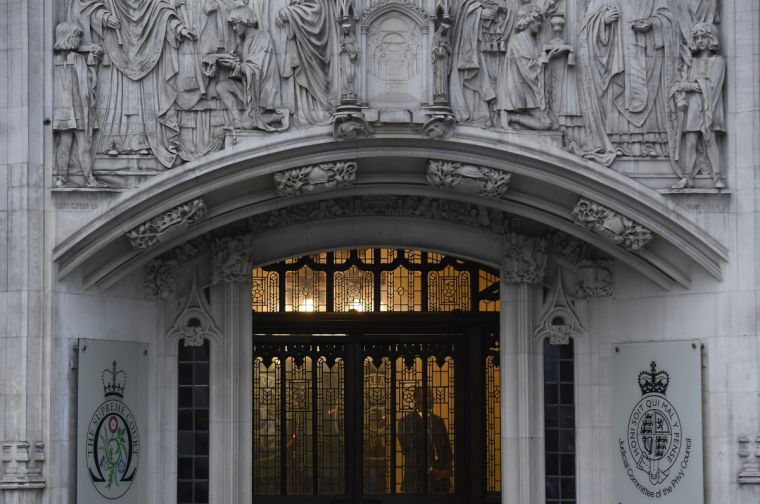Supreme Court challenges Northern Ireland abortion law – but shuts down bid to change it
Britain's Supreme Court said today that Northern Ireland's strict abortion legislation was incompatible with human rights, but that the court did not have the powers to rule that the law be changed.
Four of seven Supreme Court justices considering the issue said that Northern Ireland's current legislation, which bans abortion except when the mother's life is at risk, was incompatible with the European Convention of Human Rights. They cited article 8 of the convention, which expresses the right of an individual to have their private and family life respected.
However, four separate justices ruled that the Northern Ireland Human Rights Commission (NIHRC), which had attempted to liberalise Northern Ireland's law, did not have the right to bring the case.
'The court does not have jurisdiction to make a declaration of incompatibility (with human rights law) in this case,' it said in a summary of the decision.

The NIHRC had lobbied for a law change to allow abortions in cases of rape, incest or when a fetus had a 'fatal abnormality'. Northern Ireland's elected assembly voted against liberalising the law in February 2016.
The Supreme Court decision was welcomed by the Christian campaign group Christian Concern. The group's chief executive Andrea Williams said: 'I welcome the Supreme Court's decision to dismiss the appeal.
'Pro-abortion campaigners are already jumping on the fact that a narrow majority of judges have suggested that the law in Northern Ireland breaches the European Convention on Human Rights. But as Lord Kerr himself said, "These findings do not represent a binding decision of the of the court...the essential decision of the court...is that the appeal is dismissed and no formal declaration of incompatibility has been made."
'It would therefore be deeply disingenuous for pro-abortion campaigners to suggest that there is any legal requirement to change the law in Northern Ireland.'
Williams said the justices claiming that Northern Ireland's law breached the human rights convention were 'engaging in inappropriate judicial activism'.
'No binding UN treaty has ever suggested that there is an international right to access abortion. That language simply doesn't exist,' she said.
'Treaty monitoring bodies, like the Committee on the Elimination of All Forms of Discrimination Against Women, have no authority, either under the treaties that created them or under general international law, to interpret these treaties to include a right to access abortion. It is disingenuous and dangerous therefore for campaigners to cite a UN committee, speaking beyond its competency, as grounds for changing the abortion law in Northern Ireland.'
Additional reporting by Reuters











